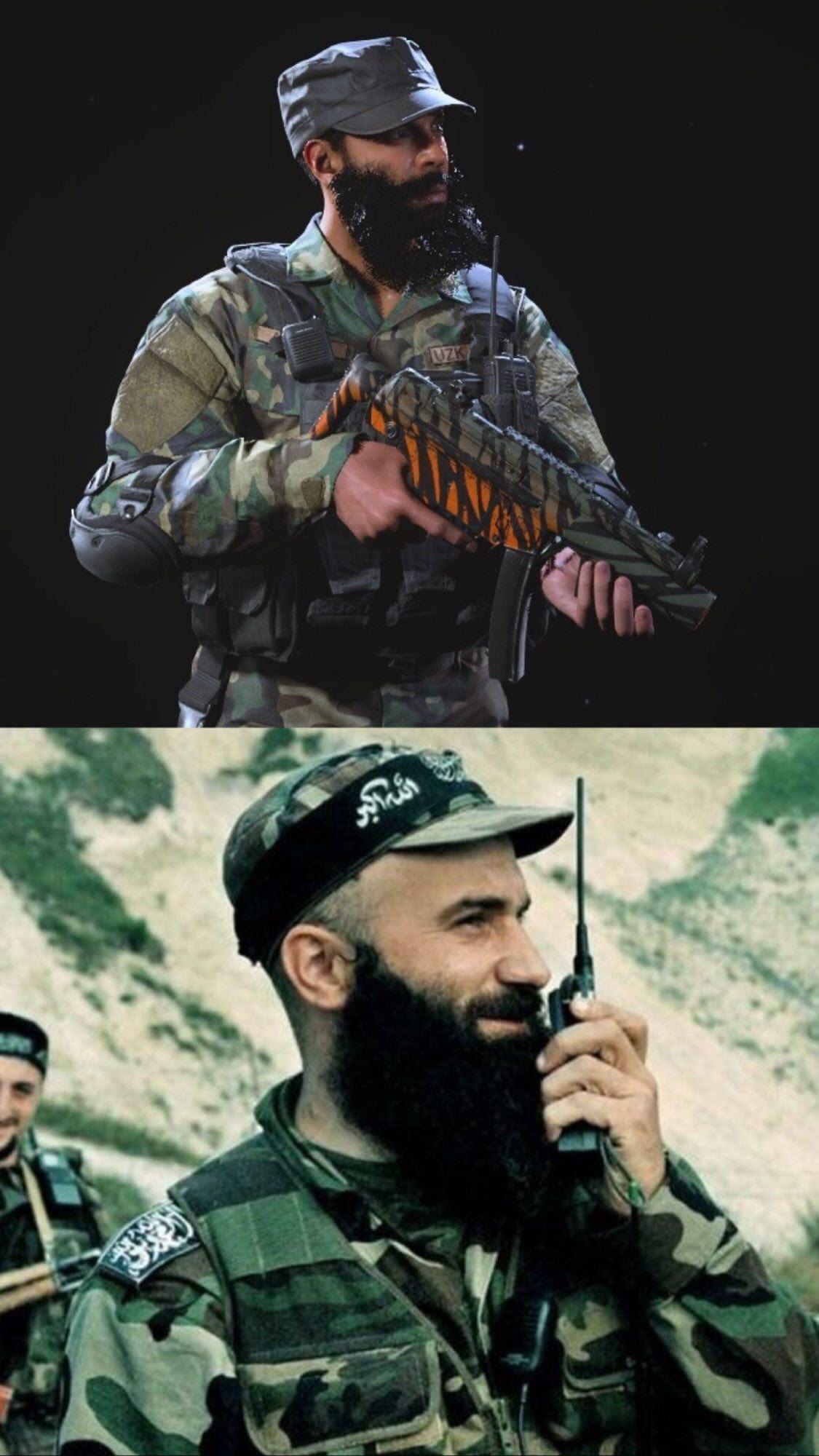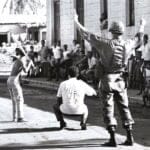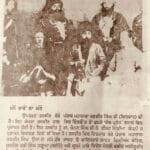From Freedom Fighter to Terrorist: The Rise and Fall of Shamil Basayev
Shamil Basayev, the Chechen rebel leader, was a man of stark contradictions. A fierce warrior who fought for Chechnya’s independence from Russia, he was also a ruthless figure linked to horrific acts of violence. His life, a tangled web of political ambitions, religious extremism, and brutality, left an indelible mark on the history of the North Caucasus.
Born in 1965, Basayev’s early life was deeply scarred by the forced displacement of the Chechen people under Stalin’s rule, an experience that likely fueled his resentment towards Russia. As a young man, he gained notoriety as a skilled military commander during the First Chechen War (1994-1996). However, the path he chose after the war led him down a dark and dangerous path.
In 1999, during the conflict in Dagestan, Basayev led a violent incursion into Russia, marking a turning point towards outright terrorism. His name became synonymous with terror as he masterminded horrific acts, including the Moscow Theater Hostage Crisis in 2002 and the Beslan School Siege in 2004, where hundreds of innocent people, including children, were killed.
The circumstances surrounding Basayev’s death in 2006 remain shrouded in mystery, adding another layer of complexity to his already controversial life. Even in death, he continues to be a polarizing figure. Some view him as a symbol of Chechen resistance against Russian oppression, a desperate fighter for his people’s freedom. Others see him as nothing short of a ruthless terrorist responsible for unimaginable suffering and loss of innocent lives.
Understanding the Transformation of a Warlord
To grasp Basayev’s transformation from a military leader into a figure capable of such brutality, it’s crucial to consider the psychological impact of prolonged conflict. The constant exposure to violence, the loss of loved ones, and the ever-present threat to one’s survival can warp even the strongest minds.
Researchers suggest that specific events or experiences may have further fueled Basayev’s descent into extremism. Was it a calculated strategy or a descent into fanaticism? These questions remain a subject of ongoing discussion and research.
Who Was the Leader of the Chechen Resistance?
While Shamil Basayev played a significant role, the Chechen resistance was not a monolithic entity under a single leader. It was, and continues to be, a complex movement with a long and tangled history.
Basayev’s Early Life and Entry into the Conflict
Born in Chechnya in 1965, Basayev’s family was among those deported to Central Asia during Stalin’s reign. This experience likely instilled in him a deep resentment of Russia from a young age. In 1991, he is believed to have participated in the Moscow coup attempt, siding with Boris Yeltsin.
When the First Chechen War erupted in 1994, Basayev, already experienced from fighting in other regional conflicts, joined the fight as a commander under Dzhokhar Dudayev. He quickly gained a reputation for his aggressive, often brutal tactics, culminating in the Budyonnovsk hospital hostage crisis in 1995, an act that earned him international condemnation.
The Path to Extremism
The end of the First Chechen War did not quell Basayev’s fight. Instead, his tactics became increasingly extreme. He forged alliances with Islamist groups, reportedly receiving training in Afghanistan. This period marked a significant shift in the Chechen resistance, with some factions embracing a more radical Islamist ideology.
Basayev’s orchestration of the Moscow theater hostage crisis in 2002 and the Beslan school siege in 2004 solidified his image as a global terrorist. These horrific acts resulted in the deaths of hundreds of innocent civilians and drew international condemnation.
Basayev’s Death and the Future of Chechen Resistance
Basayev’s death in 2006, officially attributed to an accidental explosion, remains shrouded in mystery. Despite his death, and the deaths of other key leaders like Dudayev and Dokka Umarov, the Chechen resistance movement, though fragmented, persists to this day.
While diminished, the movement highlights the unresolved nature of the conflict and the deep-seated desire for independence among some Chechens. The current political landscape, with Ramzan Kadyrov, a controversial figure accused of human rights abuses, at the helm of the Chechen Republic, further complicates the situation.
It remains to be seen what the future holds for Chechnya and its long struggle for self-determination. The legacy of violence and the specter of extremism continue to cast a long shadow, but the resilience of the Chechen people offers a glimmer of hope for a more peaceful future.
Unraveling the Chechen Resistance: A Deeper Dive
To truly understand the complexities of the Chechen resistance, it is important to look beyond the actions of a single figure like Shamil Basayev.
Key Points
- Historical Grievances: The Chechen struggle for independence from Russia spans centuries, marked by uprisings and brutal crackdowns. The 1944 deportation of Chechens under Stalin left a deep scar on the collective memory, fueling resentment and shaping future resistance.
- Diverse Leadership: The Chechen resistance was never a homogenous entity. It encompassed various factions with differing ideologies and goals. Understanding these internal divisions is crucial to comprehending the movement’s trajectory.
- Foreign Influence: The Chechen resistance was not isolated. International actors, including the US, Pakistan, and Arab mujahideen, played roles, both directly and indirectly, in supporting or exploiting the conflict.
- Human Cost: Beyond the political and military narratives lies the devastating human toll of the conflict. Thousands of Chechen civilians lost their lives, and the long-term social and psychological consequences continue to affect the region.
A Complex Legacy
The Chechen resistance, fueled by historical grievances and a desire for independence, cannot be reduced to the actions of any one individual. Shamil Basayev, with his rise from military commander to figure associated with terrorism, embodies the complexities and contradictions of the movement. His legacy serves as a stark reminder of the enduring power of ideology and the devastating human cost of conflict.
To further deepen your understanding:
- Unravel the enigmatic history of the region of ancient Mesopotamia through the lens of the New York Times.
- Explore the fascinating complexities of sectionalism and its profound impact on the shaping of societies and nations throughout history.
- Unlocking TEA Words: Comprehensive Analysis & Lexical Insights - April 29, 2025
- Unlock Sustainable Farming:Achievable Crop Yields Now - April 29, 2025
- Unlock Your Potential: Words With Inspiration for Lasting Success - April 28, 2025

















1 thought on “Shamil Basayev: The Life and Legacy of a Chechen Warlord”
Comments are closed.